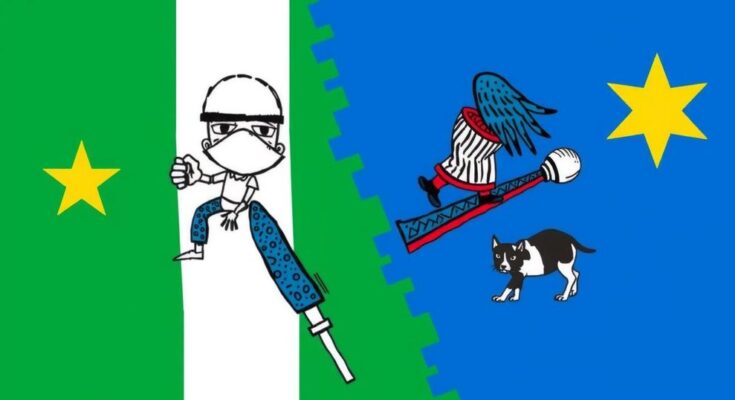Rwanda’s Foreign Minister, Amb Olivier Nduhungirehe, affirmed the country’s commitment to the Luanda peace process, denying troop support for M23 rebels in DR Congo. He emphasized that Rwandan military actions are defensive against threats from the FDLR, a group linked to the Rwandan genocide. Nduhungirehe called for direct discussions with M23 to address underlying community grievances, while rejecting claims regarding troop withdrawals, highlighting the need for national sovereignty and security.
Ambassador Olivier Nduhungirehe, Rwanda’s Minister of Foreign Affairs and International Cooperation, emphasized the nation’s commitment to the Luanda peace agreement aimed at fostering regional security. In a recent interview on BBC’s Focus on Africa, he denied accusations of Rwanda deploying troops to support the M23 rebel faction in eastern DR Congo. He stated, “We are bound by what we say and we signed in Luanda,” highlighting that the agreement includes a coordinated strategy for neutralizing the FDLR and enhancing security measures without stipulating a withdrawal of Rwandan forces. The Luanda peace process, initiated in mid-2022 under African Union auspices, seeks to resolve escalating diplomatic tensions due to the conflicts involving the Congolese army and M23 rebels. During the interview, Nduhungirehe clarified, “There is nothing in any of our outcome documents about withdrawing 4,000 troops,” rejecting claims that this was discussed in prior meetings with Congolese officials. He reiterated that any troop presence is solely aimed at countering threats posed by the FDLR, a militia comprised largely of individuals linked to the 1994 genocide against Tutsi in Rwanda. The Minister underscored the necessity of maintaining Rwanda’s defensive posture, as threats, including support for FDLR by the Congolese state and inflammatory rhetoric from the Congolese leadership, jeopardize Rwanda’s national integrity. He noted that President Felix Tshisekedi has made troubling statements advocating for regime change in Rwanda, which are taken seriously by Rwandan authorities. Additionally, Nduhungirehe addressed the complex dynamics surrounding the M23 crisis, attributing it to the marginalization of the Tutsi community in DR Congo. He urged for direct dialogues between the Congolese government and the M23 to address enduring grievances and seek potential resolutions. Concerns regarding the FDLR’s integration into the Congolese military remain a point of contention, as Rwanda perceives this as a direct threat to its sovereignty and that of the broader Great Lakes region.
The ongoing security concerns between Rwanda and the Democratic Republic of the Congo (DRC) stem from complex historical and political issues. Following years of conflict, discussions began in 2022 under the Luanda peace process, facilitated by the African Union, to address these tensions. Central to the discussions is the neutralization of the FDLR, a group formed by those involved in the 1994 Rwandan genocide, which poses security risks to Rwanda. The interactions between the Congolese army and various armed groups, including M23, further complicate the geopolitical landscape.
In conclusion, Minister Nduhungirehe’s reaffirmations regarding Rwanda’s adherence to the Luanda peace agreement highlight the country’s stance on regional security and its commitment to protecting national interests against perceived threats. The complexities associated with the FDLR and the M23 situation underscore the necessity for ongoing dialogues and preventive measures to mitigate conflicts in the region. As Rwanda navigates these challenges, it remains vital for both nations to engage constructively to foster stability and preserve peace.
Original Source: www.newtimes.co.rw




